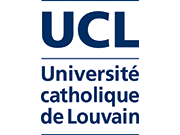 |
The PHANTOMS FOUNDATION based in Madrid, Spain, focuses its activities on Nanoscience and Nanotechnology (N&N) and is now a key actor in structuring and fostering European Excellence and enhancing collaborations in these fields. The Phantoms Foundation, a non-profit organisation, gives high level management profile to National and European scientific projects (among others, the COST Bio-Inspired nanotechnologies, ICT-FET Integrated Project AtMol and ICT/FET EUPHONON Coordination Action) and provides an innovative platform for dissemination, transfer and transformation of basic nanoscience knowledge, strengthening interdisciplinary research in nanoscience and nanotechnology and catalysing collaboration among international research groups.
The Foundation also works in close collaboration with Spanish and European Governmental Institutions to provide focused reports on N&N related research areas (infrastructure needs, emerging research, etc.). |
|
 |
|
 |
 |
 |
The Institut Catala de Nanociencia I Nanotecnologia (ICN2) is a flagship research institute within the CERCA network of centres created and supported by the Autonomous Government of Catalonia to raise Catalan science to the premier international level. The patrons of ICN2 are the Government of Catalonia (Generalitat), the Consejo Superior de Investigaciones Científicas (CSIC), and the Autonomous University of Barcelona (UAB). Its core activities are Frontier Basic and Applied Research in Nanoscience and Nanotechnology, Technology Transfer, and Public Outreach. Currently, ICN2 numbers some 200 staff from over 30 countries, of which about 170 are researchers. In addition to the theoretical and experimental groups involved in the project, ICN2´s activities in graphene include thermal management, photovoltaic, biosensors and energy applications, gathering about 40 researchers (permanent staff, postdoc and Ph.D. students). ICN2 achievements were recognised in 2014 with the Severo Ochoa Centre of Excellence accreditation, the most prestigious award targeting research centres in Spain.
ICN2 is strongly involved in Graphene and two-dimensional materials research. It includes the theoretical study and development of multiscale computational methodologies (combining ab-initio with tight-binding models) to simulate charge, spin and phonon transport in realistic models of structurally and chemically modified graphene (and two-dimensional)-based materials and devices. Additionally research is engaged in the development and demonstration of novel graphene spintronic devices, or the use of graphene and other carbon materials in biosensing and bioelectronics applications, such as low cost and large scale technology for the fabrication of graphene solution-gated field effect transistors as well as graphene electrodes, and their characterization in aqueous environment and in cell cultures based on CVD graphene or the use of graphene derivatives for electrochemical biosensors. Finally, hybrid materials including graphene are also investigated for applications in energy (supercapacitors) and photovoltaics. |
|
 |
|
 |
 |
 |
Founded in 1425, UCL is one of Europe´s oldest universities, with more than 28,000 students. UCL is a key player in fundamental research in Belgium, in Europe and worldwide and is also an official partner of the Graphene Flagship. The UCL research group of Prof. J.-C. Charlier has well versed in fundamental aspects of ab initio, atomistic and property modelling and is strongly involved in the prediction of spin-dependent transport in graphene and other 2D systems (including vdW heterostructures), based on its expertise in first-principles simulations for more than twenty five years. |
|
 |
|
 |
 |
 |
The Istituto Italiano di Tecnologia (IIT) is a Foundation established in 2003 jointly by the Italian Ministry of Education, University and Research and the Ministry of Economy and Finance to promote excellence in basic and applied research. The Foundation is intended to promote Italy's technological development and advanced education, consistent with national policies for scientific and technological development, thus strengthening the national production system. The research plan of the institute focuses on Humanoid technologies and Robotics, Neuroscience and Cognition, Nanotechnology and Materials. The Institute has a staff of more than 1300 people, the central research lab being located in Genoa. IIT has a large experience with the management of large research projects and has been involved in more than 100 EU funded projects in the last 8 years. IIT headquarter in Genoa has a 30,000m2 facility equipped with state-of-the-art laboratories for robotics, nanoscience and neuroscience, and a network of 10 state-of-the-art laboratories countrywide. Since September 2013 IIT has launched the graphene research, collected under the umbrella of the IIT Graphene Labs, which currently involves more than 30 researchers working on different aspects of graphene and bi-dimensional crystals science and technology. IIT Graphene Labs is actively involved in realising scientific and technological targets in the field of energy conversion and storage, material production (e.g., chemical vapour deposition and solution processing), deposition and composite production, as well as heterostructures and bio-nanotechnology (e.g., biocompatibility essays, biomolecule-graphene interaction). IIT Graphene Labs has a strong effort in dissemination and technology transfer activities. In particular, the technology transfer program of IIT Graphene Labs is developing through specific agreements with companies. |
|
|
|
|
| |
|
|
|
 |
|
|









